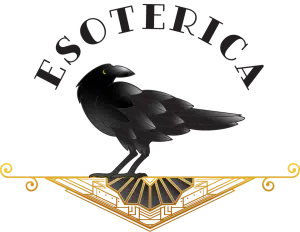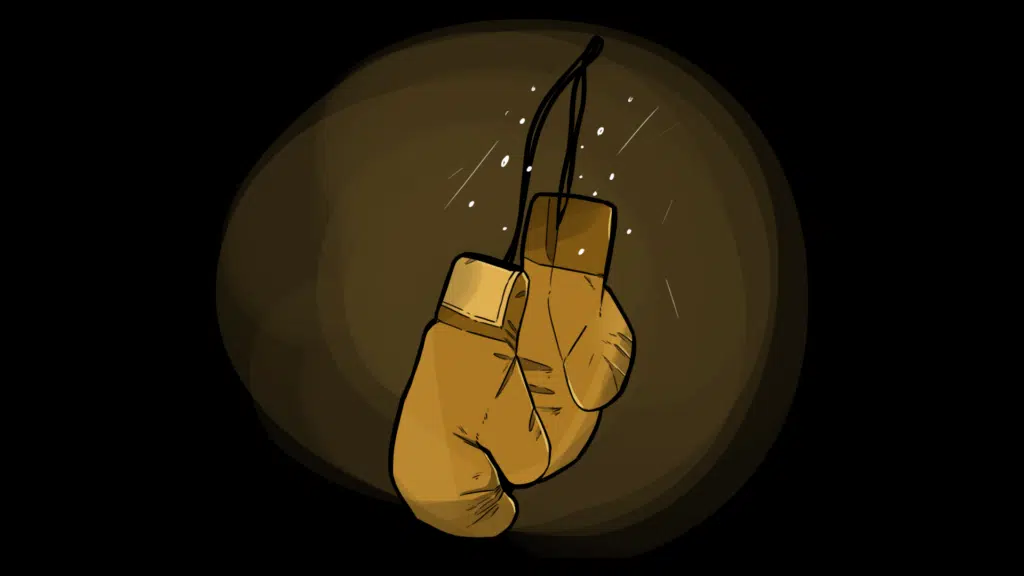(George F. Walker, one of Canada’s most prolific and popular playwrights, pens an elegy to his father in seven parts. Esoterica will syndicate one part each day leading up to Father’s Day, 2022. Read Part One here.)
By George F. Walker
Work in a Pittsburgh steel mill was hard and dirty. But a long ride on a box car had brought him there, and people were hiring. So that’s what he did. For several months.
“I could have had a future there,” he me told me once.
“What kind of future?”
“I don’t know for sure. But people rose up.”
Not him though. He was never the rising up kind. He was the moving on kind. Still a kid. But a seasoned veteran of the hobo life. And that’s how it stayed even when he had some steel mill cash in his pocket.
He liked the hobo camps. He liked the people he met there. He thought about some of them for years afterwards. White, Black. Mostly older. Hardly anyone his age. He had no problem thinking about himself living that life forever. But he thought he should probably try out a life outside the continent first.
So, he enlisted in the navy, not for once thinking that the navy and the marines were part of the same service. Or that a record of him having deserted from one would be available to the other.
And that’s what landed him in a military prison. With a very long sentence, that included manual labour, facing him. And no defence to offer. Except for the fact that he was Canadian. And very young. And his mother had filed a missing person’s report about him almost three years ago. And that his father had died while he was gone. And so had a darling sister, from some kind of “wasting disease” at the age of 12. And his mother might die too if she couldn’t find out soon what had happened to him.
All this was delivered to him by someone representing the Canadian government who’d arranged for him to be released and deported on the understanding that he would never set foot in the USA ever again.
And soon he was back home.
And not very long after that he met my mother. At a dance. And less than a year later they had a child. So, they got married. No shotgun required because he very deeply loved this woman. And then a year and a half later there was a second child when she was just 18.
And he worked. At what he could.
But soon there was The Depression and long line ups to apply for what jobs there were.
But there was usually nothing. Nothing to still his mind or expend his energy.
So, he ran. For hours. Not jogging. Just running as full out as he could to exhaust himself.
But he was getting stronger. He was actually in great shape. So then just like that he had an idea. This idea took him into a gym. A boxing gym. And a few months later he found himself in his first fight. He would go on to have 29 more. He would win a Golden Glove championship. And all his excess energy and dreams of adventures in foreign lands would be set aside.
As for money, because these were technically amateur matches, the fighters were given gifts like watches that were then replaced by cash in the dressing room. The winner “earned” more. So that was the incentive.
In his first fight he got knocked out. In both his second and third he made it to end but he was a bloody mess.
And then, mostly to stop my mother from crying and begging him to stop, I guess he started to take it more seriously. He took some time off from being beaten to train and learn the craft.
When he started to fight again, he won 25 straight.
I didn’t find out about any of this until he took me to the racetrack when I was in my teens. After the races, in the parking lot, my dad accidentally dinged the car next to him while he was opening the door. My dad was 5’ 9 inches. He weighed 175. But he fought as a welterweight. 147 pounds. Basically, you fight down to your most essential weight. Anyway, he was the runt of his Northern Scottish family.
The driver of that car was a very large and very loud asshole who immediately attacked him, threw some punches that my dad easily avoided.
Then this happened: my father who was in his late 50s then, dropped his left shoulder and then he hit the guy with a punch that was so fast I didn’t clearly see it.
What I saw was that big loud guy splayed on the hood of his car.
On the way home my father’s hand was obviously bothering him but all he said was,
“That stuff you see on tv is all wrong. You can break your hand hitting someone on the jaw. I should have aimed higher at his temple.”
When we got home, I told my mum what had happened and how scared I was that the guy was going to beat up my dad. Later she came downstairs and handed me a scrapbook she had put together about my father’s boxing career.
“Look through that and you won’t have to be afraid of something like that ever again.”
The Spanish Civil War started in 1936. International brigades were being formed to go fight against the fascist dictator Franco.My father HATED fascists!
( to be continued…)
George F. Walker is one of Canada’s most prolific and popular playwrights. Since beginning his theatre career in the early 1970s, Walker has written more than 30 plays and has created screenplays for several award-winning Canadian television series. Part Kafka, part Lewis Carroll, Walker’s distinctive, gritty, fast-paced tragicomedies illuminate and satirize the selfishness, greed, and aggression of contemporary urban culture.

